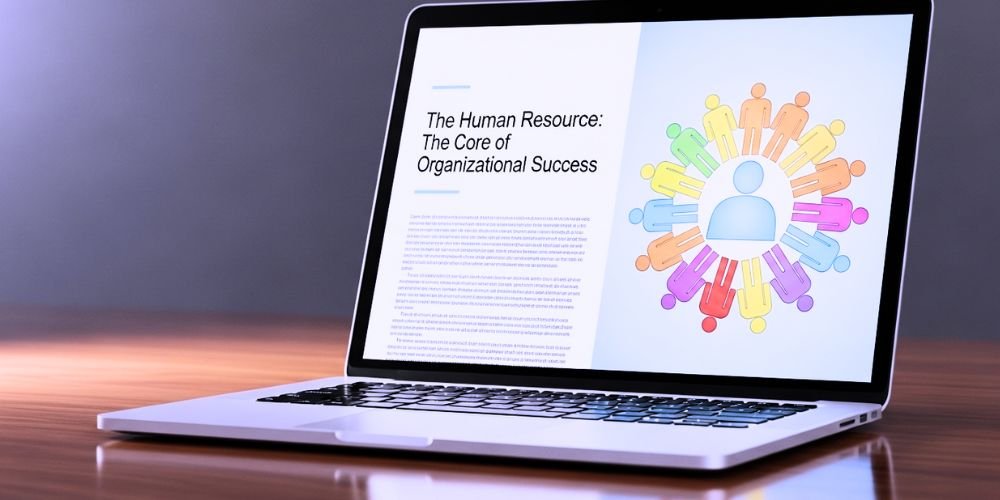The human resource (HR) function is vital in organizations worldwide. As the custodian of an organization’s most valuable asset—its people—HR is responsible for attracting, developing, and retaining talent, fostering a positive work environment, and aligning human capital strategies with business objectives. This article explores the significance of the Human Resource function, its key responsibilities, challenges, and critical role in driving organizational success.
The Role of Human Resources in Organizations
Human resources play a crucial role in organizations as they manage the company’s most valuable asset – its people.
Talent Acquisition and Recruitment
Human Resource attracts and selects qualified individuals to meet the organization’s workforce needs. It involves developing recruitment strategies, sourcing candidates, conducting interviews, and ensuring a fair and unbiased selection process. HR is pivotal in finding the right talent that aligns with the organization’s culture and values.
Training and Development
Human Resources is entrusted with fostering the growth and development of employees. It involves identifying skill gaps, designing training programs, facilitating learning opportunities, and implementing career development initiatives. HR ensures that employees have the necessary skills and knowledge to perform their roles effectively, thus contributing to individual growth and organizational success.
Performance Management
Human Resource is critical in establishing performance management systems that evaluate employee performance, provide feedback, and align individual goals with organizational objectives. HR collaborates with managers to set performance expectations, monitor progress, and reward high performers. This process promotes a culture of continuous improvement and accountability.
Employee Engagement and Retention
Human Resource is responsible for creating a positive work environment that fosters employee engagement and satisfaction. It involves developing employee recognition programs, promoting work-life balance, and implementing initiatives to enhance employee well-being. HR also plays a crucial role in managing employee relations, addressing grievances, and ensuring fair treatment throughout the organization.
Compensation and Benefits
Human Resource is responsible for designing and administering compensation and benefits programs that attract and retain top talent. This includes determining salary structures, managing employee benefits packages, and ensuring compliance with labor laws and regulations. HR ensures that employees are fairly compensated for their contributions and that benefits meet their needs.
Challenges Facing Human Resource Professionals
One of the biggest challenges facing human resource professionals is managing a diverse workforce with varying needs and expectations.
Talent Management
Attracting and retaining top talent in a competitive job market poses a significant challenge for HR professionals. Recruiting skilled individuals, developing their potential, and keeping them in the organization requires strategic workforce planning, employer branding, and effective retention strategies.
Changing Workforce Dynamics
The modern workforce is evolving, with diverse demographics, remote work options, and changing expectations. HR professionals must adapt to these dynamics, embracing flexible work arrangements, promoting inclusivity, and fostering a positive employee experience that meets the needs of a diverse workforce.
Technological Advancements
Advancements in technology impact HR practices, necessitating the adoption of digital tools for talent acquisition, data analytics, performance management, and employee engagement. HR professionals must stay abreast of technological developments and leverage these tools to streamline processes, enhance decision-making, and improve the employee experience.
Compliance and Legal Requirements
Human Resource professionals must navigate complex employment laws and regulations to ensure compliance and mitigate legal risks. Staying updated on labor laws, handling employee relations issues, and maintaining confidentiality are critical responsibilities. HR plays a vital role in fostering an ethical work environment and ensuring fair treatment of employees.
The Impact of Effective Human Resource Practices
Effective human resource practices have a significant impact on the success of a company.
Organizational Culture
Human Resource plays a pivotal role in shaping and maintaining organizational culture. HR influences the organization’s culture and values by fostering a positive work environment, promoting open communication, and nurturing employee engagement. A strong and positive culture contributes to employee satisfaction, retention, and overall organizational success.
Employee Performance and Productivity
Effective HR practices enhance employee performance and productivity. Human Resource empowers employees to reach their full potential through training and development initiatives, performance management systems, and recognition programs. Engaged and motivated employees are likelier to deliver exceptional results and contribute to the organization’s success.
Talent Retention and Succession Planning
HR initiatives aimed at talent retention, career development, and succession planning contribute to the organization’s long-term success. HR minimizes talent gaps and secures the organization’s future leadership pipeline by identifying high-potential employees, providing growth opportunities, and ensuring effective succession planning.
Strategic Alignment
Human Resource professionals collaborate with organizational leaders to align human capital strategies with business objectives. By understanding the organization’s goals and challenges, HR ensures that talent management practices, training initiatives, and workforce planning support the organization’s strategic direction. HR is a strategic partner, driving organizational success through effective human capital management.
Conclusion
The human resource function is indispensable to organizational success. From talent acquisition to performance management, employee engagement to compliance, HR professionals play a multifaceted role in managing and developing an organization’s most valuable asset—its people. By embracing the challenges and opportunities of a dynamic workforce, HR professionals can shape a positive work environment, attract and retain top talent, and align human capital strategies with business objectives. Through effective HR practices, organizations can foster a culture of excellence, drive employee engagement, and achieve sustainable growth and success.













